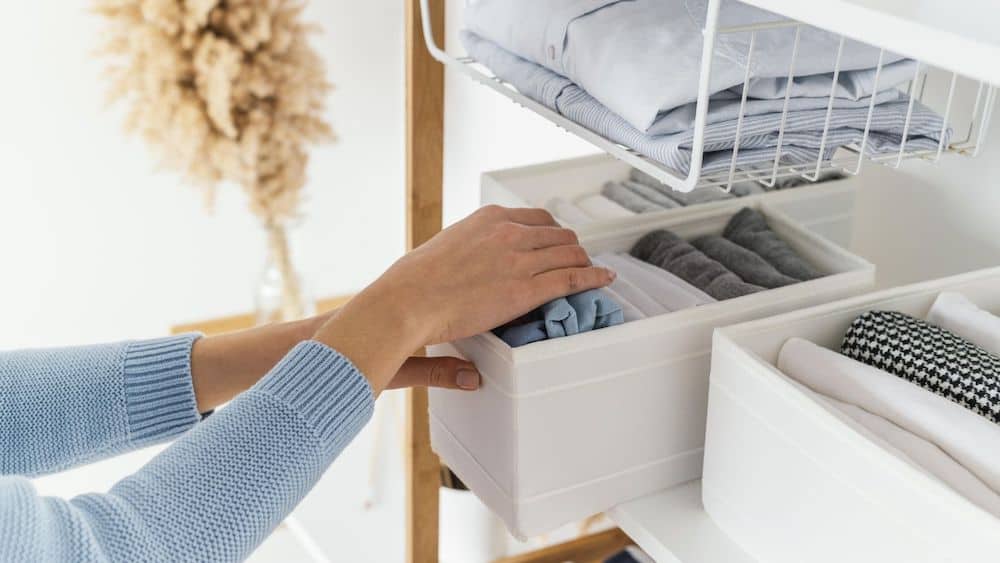Oh, boy. This is a huge undertaking and takes lots of careful planning and perhaps a bit of diplomacy!
When helping your aging parents get organized, it’s important to help them reduce as many physical demands as possible in their environment as they age, like removing clunky furniture, reducing trip hazards and improving lighting. But, it’s also critical that you help them to reduce their mental strain as well. Sorting through files, streamlining access to important information and reducing the clutter of paperwork (bills, investment records, etc.) is helpful too.
Does your parent have a problem with letting things go that borders on hoarding? If the issue causes arguments within the family, there may be a serious problem. To keep peace and harmony, you might look into a professional organizer to act as a buffer and help make the experience a positive one.
Here are five essential steps to help your aging parents get organized:
Step 1: Take Stock of Everything
Assess your parent’s situation and put a plan together. Go through their home and identify potential problems. Is their attic, basement and/or garage overstuffed? Are their kitchen cabinets or pantry filled with expired cans of food?
A word of caution: Keep your judgments to yourself. Even if your parent is driving you insane, try to be as accommodating as possible. Resist the temptation to just start throwing stuff away or forcing them to make decisions they are reluctant to make.
Step 2: Consider All Contingencies
Moving furniture and trip hazards such as throw rugs is a good thing. But you should also consider acts of God-type events that can impact your less than spry parents. Make arrangements before an emergency or disaster occurs and if needed, assist them with that process. Some things to do:
- Exchange keys or key codes for easy access
- Create one spot for emergency supplies and keep it stocked
- Be sure to keep relevant emergency documents, evacuation plans and health information is in a location known by everyone in the family
- Practice methods for contacting each other in an emergency and don’t rely on telephones working
- Notify a personal support network when going out of town and when you’ll return
For more information about emergency preparedness for seniors, check out the Red Cross website.
 Step 3: Try the Four Box System
Step 3: Try the Four Box System
The PBS-affiliated Next Avenue suggests creating four spaces/boxes to divide up your parents’ stuff. Start small. Take one room at a time. Sort their possessions using the system.
Label the boxes in whichever way makes the most sense for your parents’ situation. Here’s one idea:
- Box 1: “Keep Until I Die” – For items with sentimental value like true family heirlooms, personal letters, photo and scrapbook albums and wedding china.
- Box 2: “Appraise and Sell” – For unwanted items of value.
- Box 3: “Keep with Me” – For unsentimental items like furniture and art.
- Box 4: “Garage Sale/Donate” – For unwanted items.
Step 4: Take It Slow (if You Have the Luxury of Time)
Unless you are challenged by a tight deadline like a serious illness or moving date, don’t rush the process into a single day or weekend. The process should be ongoing over a period of weeks or months. Sorting, cleaning and eliminating a lifetime of stuff is an emotional exercise and can easily overwhelm everyone involved.
Looking for some help caring for your aging parents? Click here to check out our webinar, “Tips on Caring for Aging Parents.”
Step 5: When All Else Fails, Call an Expert
If the process of cleaning up and organizing your parents’ stuff is simply too overwhelming, search for help on Craigslist, TaskRabbit and services like Home Helpers. They are a great resource if you live far away from your parents and want to make sure they get the help needed.
Caring for aging parents can be difficult. If things are getting out of control, it might be time to sit down and talk with them about long-term care options.
Don’t forget to take care of yourself when you’re caring for your parents. It’s easy to let the burden knock your financial plan on track without realizing it. If you need help, click here contact our team. We’d love to talk!



